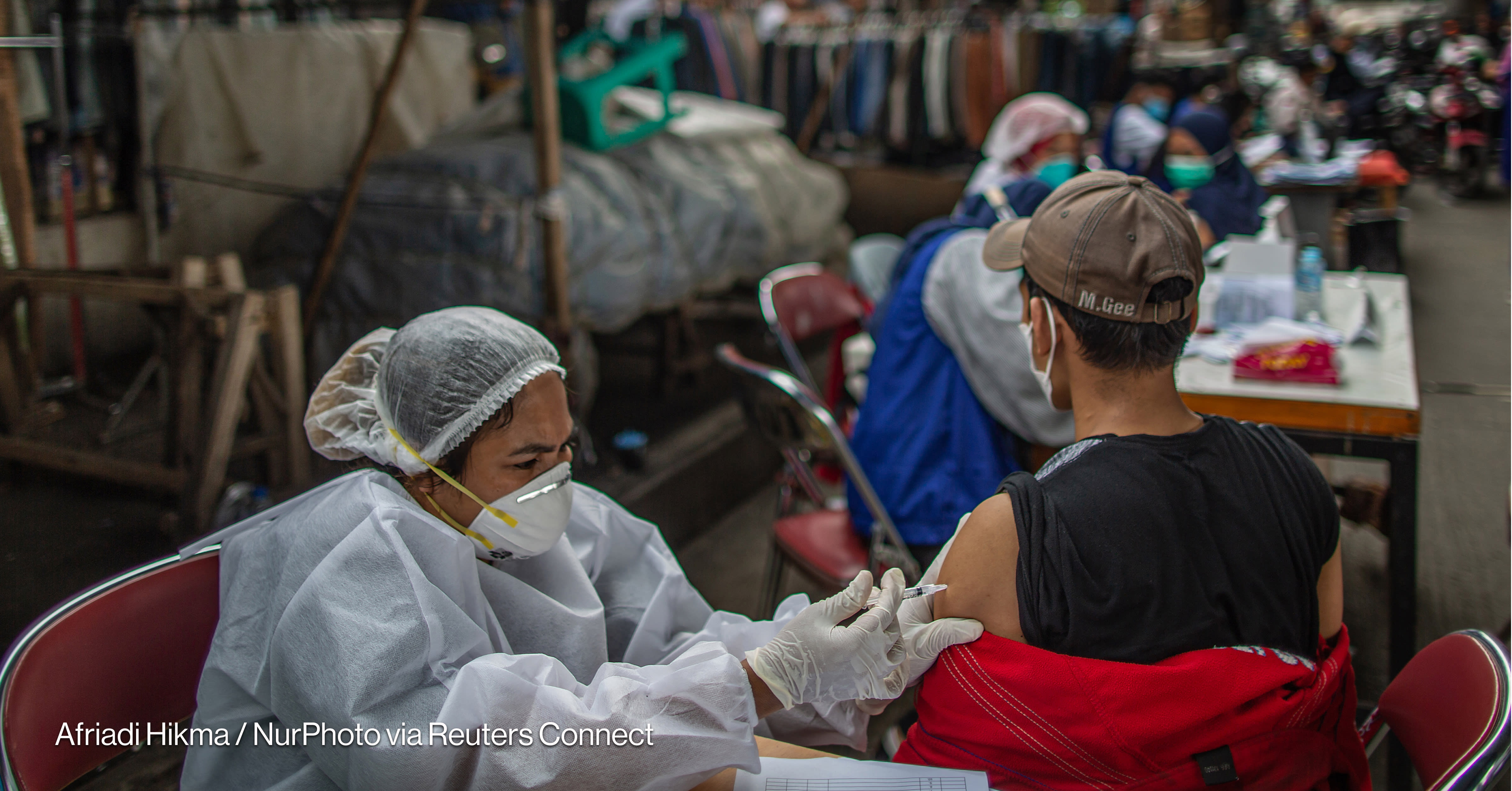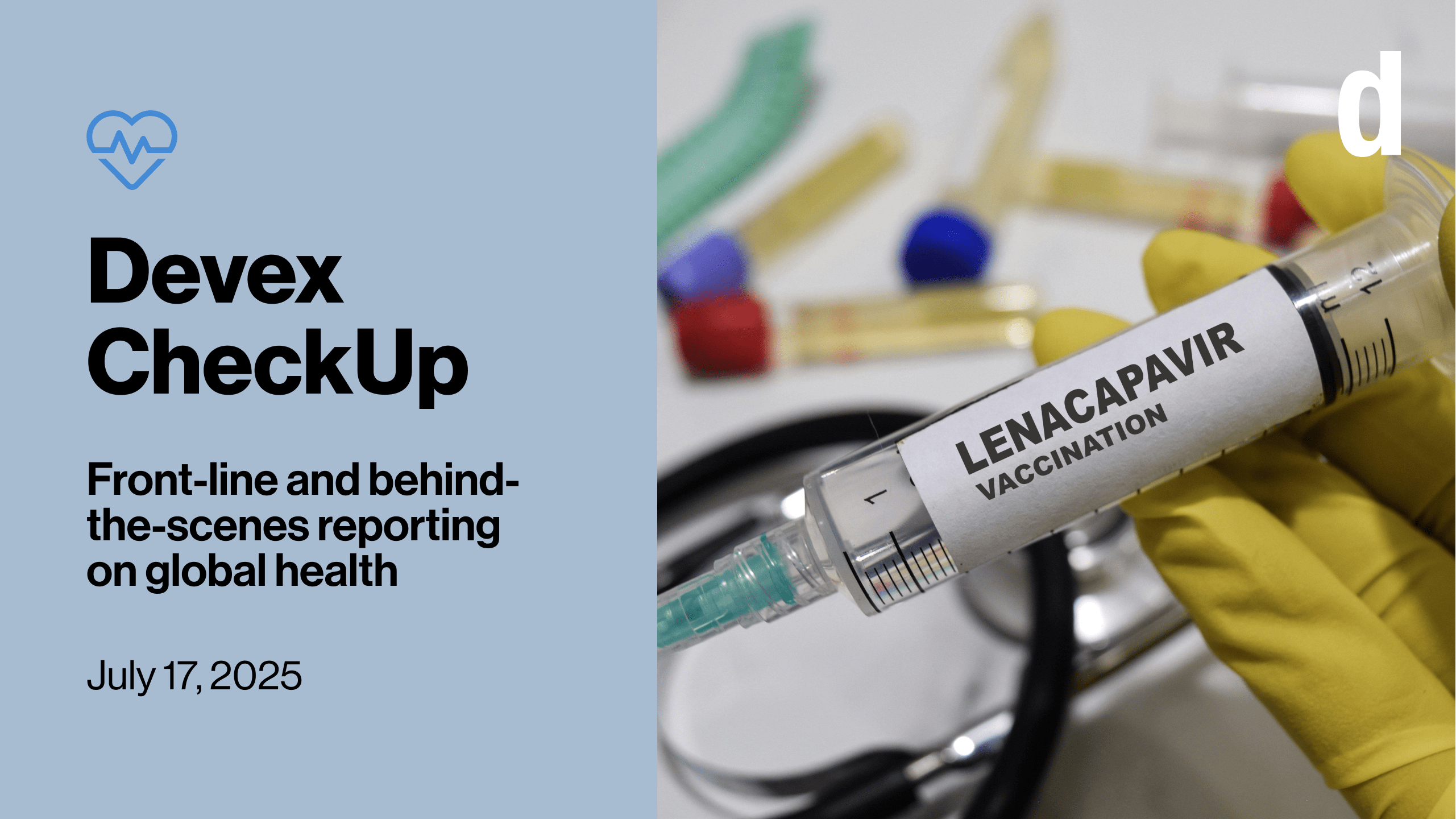
Amid a recent surge of COVID-19 cases across parts of Asia and the Pacific, many countries in the region are still grappling with insufficient access to safe and effective COVID-19 vaccines. Inequitable global distribution of vaccines has been a major obstacle. But the limited number of mature medicines regulatory bodies in the region — which are critical for vaccine manufacturing, procurement, quality assurance, and safety monitoring — is also a serious bottleneck and requires significant investment.
Talking to the experts
ADB, in partnership with Devex, launched a series of interviews with RVAG members on this innovative partnership, asking specifically how the group aims to address key vaccine-related regulatory challenges in the region. You can watch these below.
In response to calls from its low- and middle-income member countries, the Asian Development Bank's Health Sector Group established the Regional Vaccine Advisory Group to help address these challenges. Composed of leading public health experts, vaccine regulators, and policymakers, the group aims to provide member countries with technical, scientific, and regulatory advice on the quality, safety, and efficacy of COVID-19 vaccines. A key goal of the RVAG includes helping to strengthen vaccine regulatory and manufacturing capacity in the region in order to scale up vaccine access.
With vaccine access in Asia and the Pacific limited through the end of 2021 due to global production constraints, governments are under pressure to find alternative ways of addressing vaccine supply gaps.
Promoting greater coordination across countries
Through several public-private partnerships, for example, vaccine manufacturers in India — the largest vaccine-producing nation in the world — have been expanding existing capacities. Leveraging its vast vaccine output, India is expected to resume supplying vaccines to neighboring countries and the rest of the world next month after halting exports earlier in the year to manage a wave of infections. The country is gearing up not only to meet large local demand but also to foster increased regional and global access to COVID-19 vaccines, explained Renu Swarup, secretary of the department of biotechnology in India and an RVAG co-chair.
Swarup is bringing her country's experience in scaling up vaccine manufacturing to bear through the RVAG, which is developing technical guidance for countries in the region on expanding local manufacturing production.
But expanding manufacturing efforts, while critical, is not enough. Strengthening regulatory preparedness in the region, both for COVID-19 and future pandemics, is also needed.
The RVAG is also working toward this goal.
Regulatory capacity in Asia and the Pacific varies widely with countries operating across a wide spectrum of financial, human resource, and technical capacities. Weak regulatory capacity amid the pandemic has made it even more difficult, especially for LMICs, to conduct the robust regulatory or safety monitoring assessments required to make confident decisions about vaccines, said Mimi Choong, CEO at Health Sciences Authority in Singapore and an RVAG member.
“We will be in a position to be able to, as a region, come up with some really sustainable and long-term decisions.”
— Michael Wiseman, assistant secretary of the Scientific Evaluation Branch at the Therapeutic Goods Administration under Australia’s Department of HealthChoong explained that although the obstacles have been many, the pandemic has also paved the way for innovations in the regulatory environment, both at the country and global level. For instance, because of the rapidly evolving and unpredictable nature of the pandemic, some of the more functional national regulatory authorities in the region — Singapore and South Korea — have developed alternative authorization pathways to expedite approvals for medical devices and medicines.
Regulatory agility is key
Q&A: ADB's health chief on the bank's $9B vaccine access facility
Here's Dr. Patrick Osewe's take on the Asian Development Bank's response to the huge demand for COVID-19 vaccines in low- and middle-income country members, and the need to ensure that rollouts are effective and equitable.
Concurrently, the global regulatory community has shared information in an unprecedented way from discussions on how to design clinical trials to exchanging emerging safety data. This level of global collaboration has helped to accelerate timelines and ensure public confidence in the safety and efficacy of vaccines.
Referring to the pandemic and the important role that collective action has played in promoting critical information exchange among regulators — especially for countries with less regulatory capacity — John Skerritt, deputy secretary for health products regulation at the Australian Department of Health and RVAG chair, said the pandemic has required regulators to be agile and seek new approaches.
He further emphasized the unique and practical role the RVAG is playing by facilitating information exchange about emerging vaccines, including those without World Health Organization emergency use listing or Stringent Regulatory Authority approval.
By doing so, he explained that the RVAG is providing a powerful platform to support ADB's LMIC members, many of which lack robust regulatory bodies to make well-informed, evidence-based vaccine procurement decisions.
Partnering today for the future
As the pandemic continues and science evolves, regulatory coordination and harmonization remain vital for good public health. Michael Wiseman, RVAG member and assistant secretary of the Scientific Evaluation Branch at the Therapeutic Goods Administration under Australia’s Department of Health, said that with respect to harmonization, maintaining openness and a willingness to understand the similarities and differences across countries' regulatory systems and frameworks is really important. Openness and desire to collaborate among high-level government officials have generated positive results that are evident now.
The efforts of these international and regional regulatory collaborations — including those of the RVAG — have the potential to foster dynamic partnerships and enhanced coordination that can and should continue beyond the current pandemic.
"I think following the first [RVAG] meeting that happened in July, there was a lot of enthusiasm and goodwill that was shown that gives me a lot of hope that we will be in a position to be able to, as a region, come up with some really sustainable and long-term decisions,” Wiseman said.
For more information on the RVAG's role in bolstering access to COVID-19 vaccines in Asia and the Pacific, please watch ADB's Dr. Patrick Osewe conversation with Devex.




